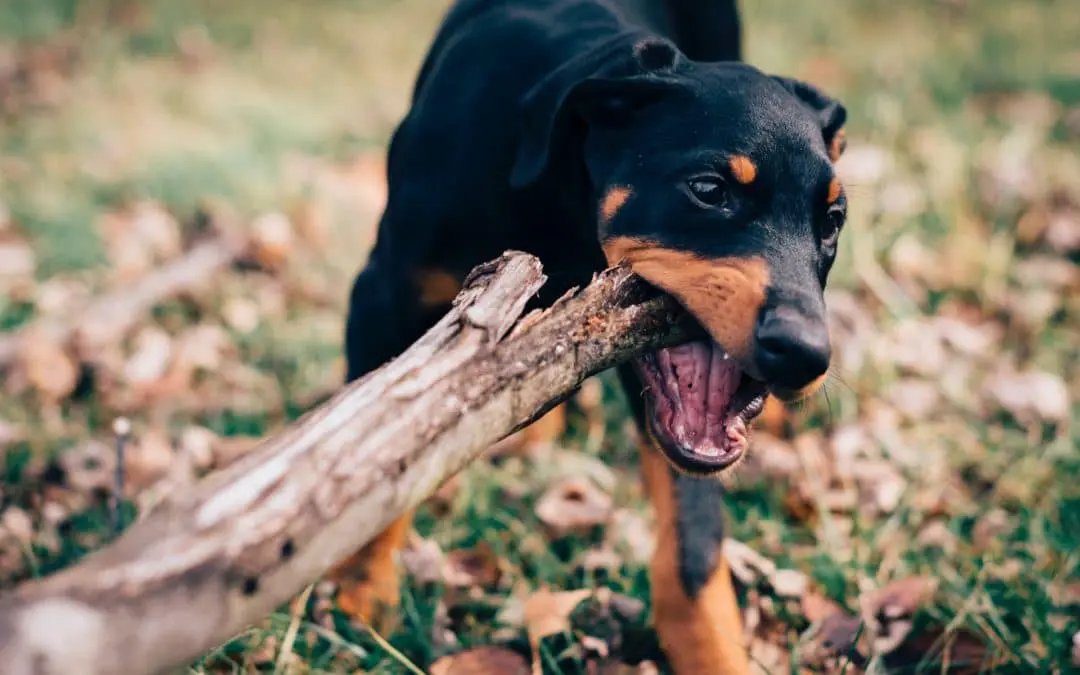Dogs and cats use their mouths for more than just eating. Cats spend hours everyday grooming, and dogs have an instinctive urge to chew on things. Keeping your pet’s teeth healthy is very important for their overall happiness and well-being. If they get cavities or break a tooth, the pain could keep them from eating or enjoying their favorite activities.
Tooth loss in pets is a very real problem, and it’s often due to decay from untreated cavities or minor cracks that get infected. Knowing how to take care of your pet’s teeth can help prevent painful dental disease and tooth loss. February is National Pet Dental Health Month, so the vets at East Valley Animal Hospital would like to share some tips on caring for your pet’s dental health.
Pet Dental Health Care: What You Need to Know
Do you brush your pet’s teeth every day? Believe it or not, daily brushing is just as important for them as it is for you! Making daily dental care a part of your routine is the best way to prevent cavities and tooth loss in pets. If you’ve never brushed your pet’s teeth before, we offer tips and instructions here: Brushing Your Pet’s Teeth.
One note of caution—never use toothpaste intended for humans to brush your pet’s teeth. Most toothpaste contains the sugar-free sweetener xylitol, which is safe for people, but extremely toxic to dogs and cats! Always use a pet-specific toothpaste when you brush your pet’s teeth, and keep your own toothpaste out of reach.
There are many ways to protect your pet’s dental health. Changing your pet’s diet, visiting a veterinary dentist, brushing your pet’s teeth, and choosing the right treats and toys are all great ways to keep your pet’s teeth and gums in good health. For more tips on pet dental care at home, check out our recommendations here: At-Home Pet Dental Hygiene Tips
Cat Dental Care
One common dental disease in cats is tooth resorption. It affects up to 60% of all cats, especially cats who are five years or older. This condition erodes the middle layer of the tooth (the dentin), causing irreparable damage and considerable pain. Since cats instinctively hide their pain, you might not know that your feline has a diseased tooth until you visit a veterinary dentist.
Another common dental problem in cats is dry mouth. Stress, anxiety, and dehydration can all hinder saliva production, creating a dry environment where bacteria can thrive. Bacteria buildup creates the plaque and tartar that cause gum disease and tooth decay. To prevent dry mouth, brush your cat’s teeth daily and make sure they get plenty of fresh water to drink.
Dog Dental Care
If you have a dog, you know that they have an unquenchable urge to chew and gnaw on things. However, if they chew on hard objects like sticks, bones, or antlers, they could crack or break their teeth. Broken teeth can easily become infected, and may need to be extracted in order to prevent infections from entering the bloodstream and spreading throughout your dog’s body.
Severely bad breath could also be a sign of dental infection or tooth abscess, as well as tooth decay or gum disease. If your dog has persistently rotten breath, any swelling in their face, or is only chewing on one side of their mouth, make an appointment to see a veterinary dentist as soon as possible. To keep your dog’s teeth strong and healthy between dentist visits, choose safe chew toys and brush your dog’s teeth every day to remove plaque and bacteria.
Pet Dental Care in Gilbert, Arizona
Scheduling regular checkups with a veterinary dentist for exams and cleanings will help you prevent any dental issues that could cause your pet pain. It’s also often the only way to identify existing dental issues and treat them before they grow worse. Our team is exceptionally skilled in dentistry—Dr. Mafara has worked closely with his mentors at Arizona Veterinary Dental Specialists to ensure that we provide the most innovative pet dental health care. To schedule an appointment, call East Valley Animal Hospital at 480-892-1577 today.
Photo by Jordan Whitt on Unsplash used with permission under the Creative Commons license for commercial use 2/19/2022.

